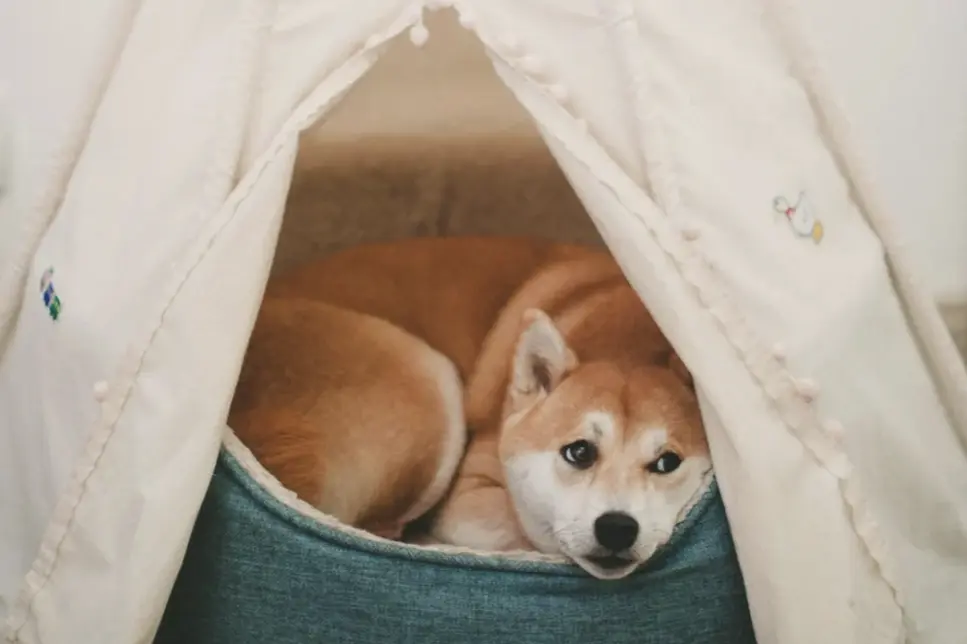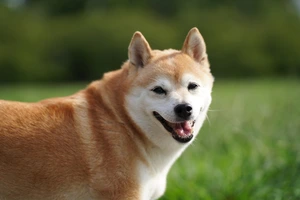
As a dog owner, it’s important to not only take care of your Shiba Inu’s physical health but also their mental and emotional well-being. Mental and emotional health can have a significant impact on a dog’s overall quality of life and can affect their behavior and personality.
Shiba Inus are known to be independent and strong-willed dogs, which can make it challenging to take care of their mental and emotional well-being. However, with the right approach and dedication, you can help your Shiba Inu live a healthy and happy life. In this guide, we will cover everything you need to know about taking care of your Shiba Inu’s mental and emotional health, from socialization and training to mental stimulation and stress management.
Socialization
Socialization is a crucial aspect of a dog’s mental and emotional well-being, especially for a breed like the Shiba Inu. Shiba Inus can be wary of strangers and other dogs, and without proper socialization, they may become anxious or aggressive.
To properly socialize your Shiba Inu, it’s important to expose them to a variety of people, animals, and situations from a young age. This can include visits to the park, walks in busy areas, and playdates with other dogs.
It’s important to introduce your Shiba Inu to new experiences gradually and positively, using treats, praise, and playtime to associate positive feelings with new situations. This can help your Shiba Inu learn to feel comfortable and confident in new environments and around new people and animals.
Proper socialization can not only improve your Shiba Inu’s mental and emotional well-being but can also help prevent behavioral issues such as aggression or separation anxiety.
Training
Training is another important aspect of a Shiba Inu’s mental and emotional health. Shiba Inus are intelligent and independent dogs, but without proper training, they can become stubborn and difficult to handle.
Training not only provides mental stimulation for your Shiba Inu but can also improve their behavior and strengthen the bond between you and your dog. Positive reinforcement training techniques, such as using treats and praise, are effective for Shiba Inus and can help build their confidence and trust in you.
Basic obedience training, such as sit, stay, and come, is important for all dogs, but Shiba Inus can benefit from more advanced training as well. Agility training and trick training can provide mental stimulation and challenge your Shiba Inu’s problem-solving skills.
Consistency and patience are key when it comes to training your Shiba Inu. Remember to always use positive reinforcement techniques and keep training sessions short and fun to keep your Shiba Inu engaged and motivated.
Mental Stimulation
Providing mental stimulation for your Shiba Inu is important for their mental and emotional well-being. Shiba Inus are intelligent dogs that need mental challenges to stay happy and healthy.
There are many ways to provide mental stimulation for your Shiba Inu. Puzzle toys and interactive games can keep your dog’s mind active and engaged. You can also try hiding treats around the house or yard for your Shiba Inu to find.
Training sessions are also a great way to provide mental stimulation for your dog. Teaching your Shiba Inu new tricks or advanced obedience can challenge their problem-solving skills and keep them mentally sharp.
Regular exercise is also important for a Shiba Inu’s mental and emotional health. Long walks, runs, or play sessions can provide both physical and mental stimulation for your dog.
Remember to always provide mental stimulation in a safe and supervised environment, and never leave your Shiba Inu unattended with toys or games that could be a choking hazard.
Stress Management
Stress can have a negative impact on a Shiba Inu’s mental and emotional well-being. Shiba Inus are sensitive dogs, and they can become stressed from a variety of situations, such as loud noises, new environments, or separation from their owner.
To manage your Shiba Inu’s stress, it’s important to identify the causes of their stress and take steps to reduce or eliminate them. For example, if your Shiba Inu is afraid of loud noises, such as thunderstorms or fireworks, you can create a safe and quiet space for them to retreat to during these events.
Regular exercise and playtime can also help reduce stress in Shiba Inus. Exercise releases endorphins, which can improve your dog’s mood and reduce stress levels. Interactive playtime, such as fetch or tug-of-war, can also provide mental stimulation and help distract your Shiba Inu from stressful situations.
If your Shiba Inu is experiencing chronic stress or anxiety, it’s important to work with your veterinarian or a professional dog trainer to develop a management plan. This may include behavior modification techniques, medication, or other interventions to help your dog cope with their stress in a healthy way.
Health and Nutrition
A Shiba Inu’s mental and emotional well-being is closely linked to their physical health and nutrition. Proper nutrition and a healthy lifestyle can improve your Shiba Inu’s mood, energy levels, and overall well-being.
A high-quality diet that is appropriate for your Shiba Inu’s age, size, and activity level is important for their physical and mental health. Consult with your veterinarian to determine the best diet for your dog.
Regular exercise is also important for a Shiba Inu’s physical and mental health. Exercise can help prevent obesity, which can have negative effects on a dog’s mental and emotional well-being. Additionally, exercise releases endorphins, which can improve your Shiba Inu’s mood and reduce stress.
Regular check-ups with your veterinarian are also important for maintaining your Shiba Inu’s physical and mental health. Your veterinarian can detect and treat any health issues early, before they become more serious and affect your dog’s mental and emotional well-being.
Remember to always provide fresh water and a comfortable living environment for your Shiba Inu. A healthy and happy dog starts with a healthy and happy lifestyle.
Signs of Mental or Emotional Distress
As a Shiba Inu owner, it’s important to be aware of the signs that indicate your dog may be experiencing mental or emotional distress. Signs of distress can vary depending on the dog, but some common signs to look out for include:
-
Excessive barking or howling
-
Destructive behavior, such as chewing or digging
-
Changes in appetite or sleeping patterns
-
Aggression towards people or other animals
-
Excessive licking or grooming
-
Hiding or avoiding social interaction
-
Depression or lethargy
If you notice any of these signs in your Shiba Inu, it’s important to work with your veterinarian or a professional dog trainer to determine the cause of the behavior and develop a management plan. Ignoring signs of distress can lead to more serious behavioral issues and affect your dog’s overall well-being.
Remember to always approach your Shiba Inu with patience and understanding. Shiba Inus can be sensitive dogs, and they may require extra attention and care to maintain their mental and emotional well-being.
Taking care of your Shiba Inu’s mental and emotional well-being is just as important as taking care of their physical health. By providing socialization, training, mental stimulation, stress management, and a healthy lifestyle, you can help your Shiba Inu live a happy and fulfilling life.
Remember to always approach your Shiba Inu with patience, understanding, and positive reinforcement techniques. With the right approach and dedication, you can build a strong bond with your Shiba Inu and ensure they live a healthy and happy life.
If you notice any signs of distress in your Shiba Inu, don’t hesitate to seek professional help. A healthy and happy dog is a lifelong companion that brings joy and love to your life.



